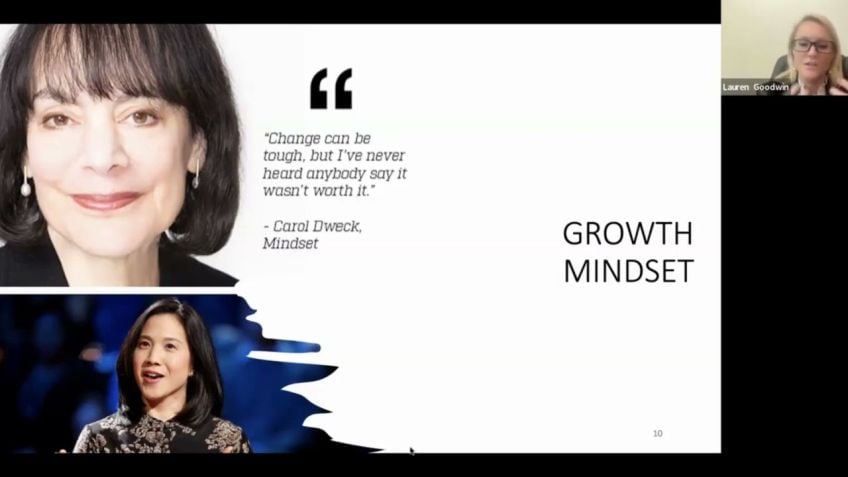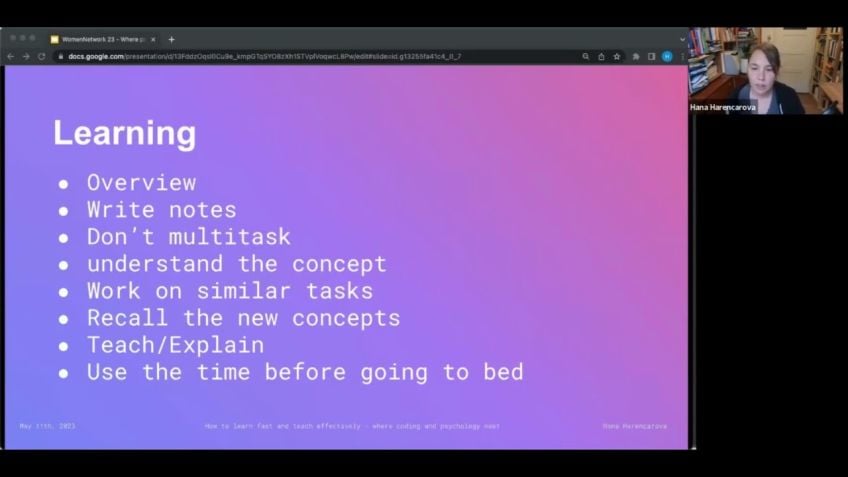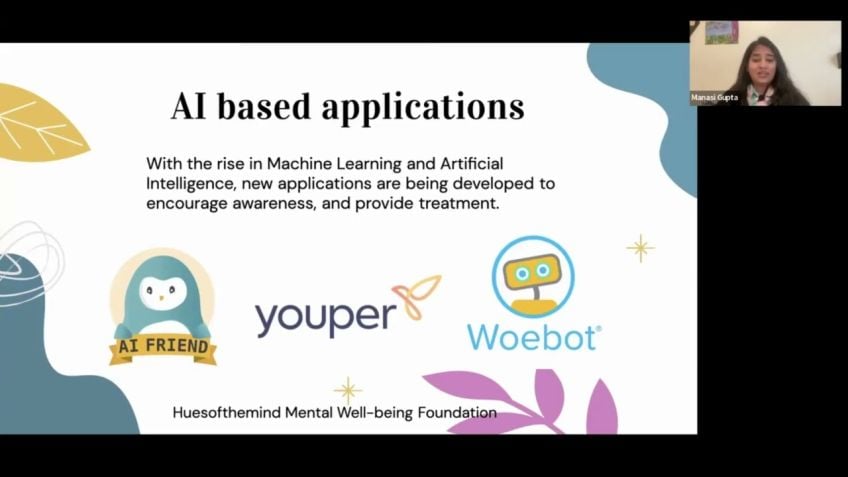Sreyoshi Bhaduri Lifelong (Un)Learning - Leveraging Data to Forge Ahead
Understanding Lifelong Learning, Unlearning, and the Pay Gap: A Deep Dive with Reo Shibari
Welcome to a thought-provoking reflection on lifelong learning, unlearning, and the gender pay gap. A concept widely heard of but seldom discussed in depth. Today, we delve into this issue alongside Reo Shibari, a much-accomplished engineer, Doctorate holder in Engineering Education, and esteemed People Research Scientist.
Reo Shibari: Engineering Change Through Learning
Reo Shibari, the Global Head of People Research and Analytics at McGraw Hill, brings her unique perspective into our discussion. Her focus revolves around employee engagement - a critical aspect of every organization where employees, unsurprisingly, are key stakeholders. Using her experience and profound knowledge, she navigates us through the fields of organizational structure, employee behavior, culture, talent, and talent acquisition. This discussion combines data, learning, and real-life applications relating to the pay gap issue.
The Pay Gap: An Ongoing Struggle for Women in Tech
Several studies have highlighted the persistent gender wage gap, even in fast-evolving sectors like technology. This inequality becomes crystal clear when you realize that women contribute immensely to the tech industry, yet earn only 72 cents for every dollar a man earns. Over time, this gap accumulates, dragging down female employees' motivation and sense of value.
Why Does the Pay Gap Exist?
Often, the existence of the wage gap tends to baffle many, prompting one to ask: Why does this unequal compensation exist? According to a survey by the International Labor Organization, this boils down to four main reasons:
- Across the globe, women still tend to receive fewer years of schooling.
- Men typically occupy better-paying jobs with a higher status.
- Women often perform a disproportionately larger share of family tasks, which subsequently penalizes their employment scope and status.
- Last but not least, blatant pay discrimination, which results in hugely disproportional wages for women.
Taking Action: Learning and Unlearning
In this unjust environment, learning agility is of utmost importance. Warren Bennis, the renowned scholar and organizational consultant, defines learning agility as "knowing what to do when you do not know what to do." This involves acquiring new skills, innovating, reflecting, venturing out, making mistakes, and, most importantly, taking ownership. These are the steps to bridge the gender pay gap, and they involve unlearning societal stereotypes, making use of available data, and thinking like problem solvers.
How To Tackle the Pay Gap
- Begin by unlearning societal stereotypes: These stereotypes hold women back from negotiating at work and hinder us from aiming higher.
- Use the data around you: In this digital age, we have an abundance of information at our fingertips. Let's use it to our advantage in our careers.
- Think like a problem solver: Use the skills you've acquired in your tech careers to negotiate your salaries, ask about compensation packages, learn about company benefits, and leverage available tools for professional development.
Most of all, it's vital to remember that tackling this inequality goes beyond the individual level. It involves starting conversations within your organizations and communities to solve this issue systemically. Wage equality won’t be achieved in our lifetimes unless we take charge, learn, and unlearn.
In the pursuit of wage equality, let us not forget the power of conversations and action. As we delve deeper into digital age challenges, let us use our positions, as women in technology, to initiate change and forge ahead in our careers while ensuring we extend the ladder to those that follow.
For more insights on wage equality, feel free to connect with Reo Shibari on LinkedIn, or reach out via email. Every bit of knowledge shared goes a long way towards bridging the wage gap.
Video Transcription
OK, so we are almost at time. And um again, to those who have just joined in, welcome to this talk on lifelong learning and unlearning. So my name is Reo Shibari and I am an engineer like many of you here. I'm a woman in tech.I also earned my doctorate in engineering education and I'm a people research scientist by profession. So I use my background training um to kind of help me head global people research and analytics at mcgraw Hill. Um For those who are not familiar people research and analytics deals with employees at an organization. So employee engagement at every organization, the employees are the most critical stakeholders, right? And people research is an interdisciplinary field that studies organizational structure, employee behavior, culture, talent, talent acquisition, and a whole lot of other very interesting things as you can gather, I use a lot of data in my work and I use a lot of learning. So today we are together going to learn more about data learning and then apply it to the pay gap. Specifically, we will learn about learning and unlearning. And as we think about why it is important to unlearn we will also come up with ways we can leverage data to forge ahead in our careers as well as tackle really important challenges that women face in their careers such as the pay gap.
So essentially over the last uh next couple of minutes, we will be educating ourselves, then we'll spend a little time introspecting and finally acting. So let's start with educate. I know that a lot of you um have probably heard of the pay gap. I know there have been other sessions that may have hinted at the pay gap or talked about it in detail. Um But I know that several of you may be asking the question. Does the pay gap even impact me? And so let us first start by educating ourselves with the challenge at hand. So imagine the scenario, right? You have just graduated, you may have also landed your first job. So let's assume that all of you attending today have just graduated and landed your first job as a computer programmer, a very common job in amongst women in technology. Well, did you know that even among computer programming, women only earn 72 cents relative to every dollar that men in same positions make? So the pay gap essentially only worsens with time in a study that was conducted on graduates fresh out of business school, they found that women graduates were earning on an average about 100 and $15,000 to the men who were earning around 100 and $30,000 annually.
The difference is just about $15,000 annually. Which really, if you think of it in the bigger picture is probably not too much, right? But what happens is, and what the study found was that nine years later, this seemingly small difference of a couple $1000 adds up. And at the end of the nine years, the men in the same study were earning hundreds of thousands of dollars more than the women. So essentially what that ha what that means is that women in tech and in other positions as well through their career, start feeling demotivated, disillusioned and then start, you know, realizing that they aren't valued as much as men. So that gives us a little context about what the pay gap is, right? So next, I want all of us to introspect a little bit and to introspect, we want to understand why is there a pay gap? So we know what is the pay gap and what it looks like? But why is it in the first place? Why is there a gap? So according to the International Labor Organization, there are four main reasons across the globe, women still tend to have fewer years of schooling. Men predominate in better paying and high status jobs. While women are more concentrated in lower paying jobs with little decision making power, women also typically perform a grossly unequal share of family or household tasks which as a result causes a higher penalty at work.
And then there's good old pay discrimination, which can be direct or indirect and as a result of which the wages are hugely disproportional for women. So there was a study by the economist Claudia Goldin who in 2014, as she was modeling, the pay gap found that the unexplained portion or the residual gap in the pay models was more today than it was in the 19 eighties. So what that means is that even though women are probably getting more degrees, they're more qualified, they have more experience than they had in the 19 eighties compared to men, they're still earning lower. And there's that unexplained part of the gap, which is possibly due to discrimination that women are still earning lower than what men are making in present day. And we see that all around us in the US, we know that pay is impacted by race. And this is a very powerful visual which really shows us how real it is for women who are at an intersection of race, different races and how much lower they get paid for similar jobs as compared to white men. It's really shocking. Obviously, we won't go into it in further detail. But there are several resources which go into detail about how race motherhood, one's identity, caste nationality, all of these things compound the effect of gender on pay parity.
And we do know that the pandemic isn't helping make things easier at all. In fact, women were among the worst affected due to the COVID-19 crisis, women are vulnerable not only because of their jobs but also because of gender inequalities. And so now that we have kind of introspected and kind of understood what may be the reasons for the pay gap. Let's think about ways in which we can act. And let's pause here for a bit because I want to make sure that we are not implying that the onus of solving for discriminatory practices is on women or on people of color or on any marginalized community. Quite the contrary, I'm saying that we need to hold people accountable as well as control all that we are able to control that is within our possibility. So with that, one of the things that we can think of is negotiating pay. So I and I don't know how many of you have thought about this, but there is research to show that 60% of women say that they have never negotiated their salary and this is a result of societal constraints. Um how we view money, how we view gender and salary.
But the result is that 60% of women who are presently in jobs in the US state that they have never negotiated their salary and they often quit rather than go and have a conversation with their bosses about pay. And I know that, you know, all of the information that I, that I shared may still leave some of you wondering, what can I do? I, I don't know what to do and in fact, there will be many times in our careers that this happens that we absolutely do not know what to do. In fact, there was a study, um, by mckinsey that suggested that by 2030 70 million odd jobs would be eliminated and an additional 50 million jobs that we see today would need to be modified or changed. Let's even think about COVID-19, right? People have had to completely pivot to working through absolutely remote uh locations through the pandemic, the skills that they have had to build. We are doing this conference virtually the, the learning and the unlearning that has taken place. Those are immense and these are the new situations that I'm talking about where we may not always know what to do. And in these situations, learning agility is your lifelong friend.
Um I love this definition of learning agility where it is defined as knowing what to do when you do not know what to do. And also this quote by Alvin Toffler who talks about the illiterate of the 21st century, being one who cannot read and write, sorry, not being one who cannot read and write, but being one who cannot learn unlearn and relearn the good news is that learning agility can be developed.
And uh Warner Beg from Colombia, essentially, he has several talks about it and he talks about how one can really learn how to be innovative. One can learn how to better perform how to be meta cognitive or reflect and then go out, venture out, make mistakes. But then take ownership. That is basically how you can develop learning agility in a nutshell. So how would we apply it to the wage gap? Right. And obviously, the session is just 20 minutes, but the conversations I hope will continue for a long time. And some of you may be asking what can I do? And my advice to you is begin by unlearning some of the societal stereotypes. There are several societal stereotypes that hold us back and do not allow us to negotiate at our jobs to maybe, you know, think or aim for something higher than we're than what we are given. The second is use the data around you. We live in times where there is so much data around us as women in technology, several of us are using data in our everyday lives. We are manipulating data, we are um taking readings, we are researching, we are giving our companies insights based on data. Let's use data for ourselves and our careers as well. And finally think like a problem solver. And I know this is not new to anyone of you on this call. We are women in technology that is basically what we've been doing for our lifetimes. We've been problem solving.
And I want you to use all of those skills that you've learned as a woman in technology. But towards your careers, towards your careers, towards your career, trajectories. Thinking about your salaries, thinking about pay, negotiation, thinking about pay, not only in terms of the take home figure that you have at the at the end of a month or a year, but thinking of it as the whole package, ask your companies for example, what are the compensation philosophies?
What does the compensation package look like? What benefits do you have as a woman working for the company? What kind of tools can you leverage? What does the company pay for in terms of professional development? Is your company allowing you to attend this conference? Is it paying for other conferences as well? All of these are very important questions that we sometimes ignore or choose to ignore. And one thing that I would urge all of you to do is think as a problem solver and use all of the data that you have to solve for this challenge of your own career trajectories and also most importantly tackle inequality, not only at an individual level. So not only having these conversations for yourself, but also start having these conversations organizationally and in your communities. Because we need to make sure that the gap is bridged systemically. We want it out of our, all of our communities, not just for our own selves and with that I want to leave you with a few images. So this is from 18th May 1969 at Trafalgar Square in London. And this is a young lady Pauline worker who is at an equal pay for women demonstration. And this is in 2016, 6th April in Connecticut where another young woman is holding up a sign on equal pay.
Now, there is a gap between the two years and the pay gap has changed. So in 1969 women were earning 60% on an average to what men were earning in 1969. In 2016, women are earning about 80% of what men were earning in 2016. It took us 47 years to jump 20% points. So to go from 60% to 80% it took us about 47 years. How long do you think it's going to take for us to reach 100%? Why don't you put in a number in the chat? It can be give me the number of years or if you have a year in mind. Is it 2022 2051? Any any year that you have in mind that our pay parity is going to be solved for? And there is going to be no pay gap. What do you think is the year that men and women are going to be earning equally any guesses any at all? And some of you may be thinking 5, 1050 100. Well, the answer is not anytime soon. It's according to the United Nations, it's going to be a 250 odd years and that's further, um, been added to because of the pandemic. So, so really, it's definitely not happening in our lifetimes unless we take charge. And so I want to hear from all of you and I know that our session is small, but um, reach out to me and let's talk about what steps you will take based on what you learned today because together we can and we will feel free to connect with me over linkedin or reach out over email.
Um But I'm happy to answer a few questions. Now, I see you on the last question. Do you think COVID Times has pushed us back in the conversations or fight for equal pay? Yes, absolutely. Um uh There was a study that I read in um earlier this year from the Ilo which talked about how one year of the pandemic has pushed us back at least 37 years as we think about reaching equal pay. And that's, that's caused a lot of concern because women are women and other minorities are the most impacted when we think about who has had to step down from the workforce or who has been burdened with more work but not being compensated enough. So, absolutely, COVID-19 has really created a lot of barriers for us as we think about reaching equal pay. So great question. But yes, absolutely. You're welcome, Ruta, feel free to reach out with more questions. And um these are some of the places where I got my information from.
Um But I will also try to share it on the session, the the deck so that you can click on some of the links. But I hope you enjoyed the conversation and I hope to carry on the conversation with some of you um you know, till we solve for the pay gap. But thank you so much.





